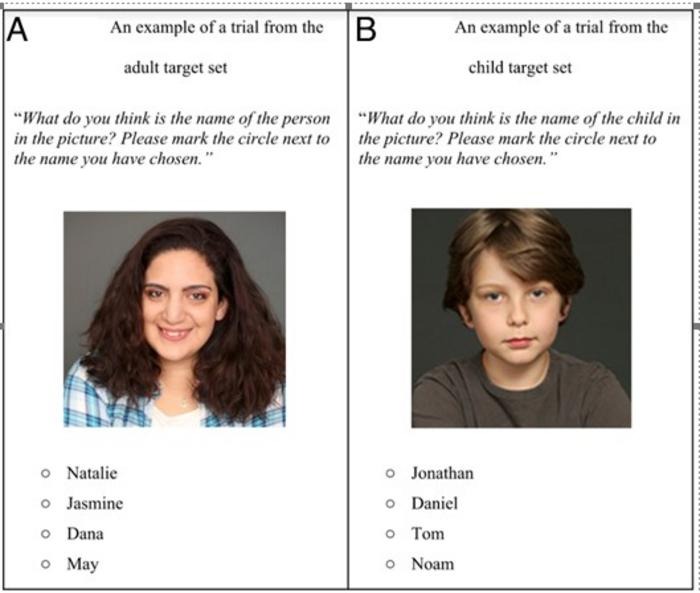Published on
updated on
Reading 1 min.
Contrary to the popular belief that parents choose a first name at birth based on their child’s appearance, the correspondence between first name and physical appearance is not innate but develops over the course of our lives, according to an Israeli study.
A recent study from the Hebrew University of Jerusalem highlights a surprising discovery: the first name we bear could influence our physical characteristics over time.
The researchers found that this correspondence is not present in children’s faces, but that it does emerge over time, with the probability of a name match being higher in adult faces than in children’s faces.
“These results suggest that concordance between facial appearance and names is not innate, but develops as individuals mature.” explains professor and psychologist Ruth Mayo in a press release. “It appears that people change their appearance over time to conform to cultural expectations associated with their name.” he adds.
To reach this conclusion, the researchers used machine learning algorithms. However, using images of children’s faces that had been artificially aged, they did not observe any correspondence between the face and the name observed on the faces of real adults.

The study shows that first names function as a social label that influences our physical appearance. This phenomenon, known as a “self-fulfilling prophecy,” reveals how social expectations can subtly shape people’s appearance. About 60.05% of the facial images tested showed that the similarity between faces with the same first name was higher than that between faces with different names.
Adults’ faces thus appear to increasingly match their first names, highlighting the complex interplay between social factors and identity formation, although “further research is needed to fully understand the mechanisms underlying this face-name matching effect, as well as its broader implications,” concludes Ruth Mayo.

